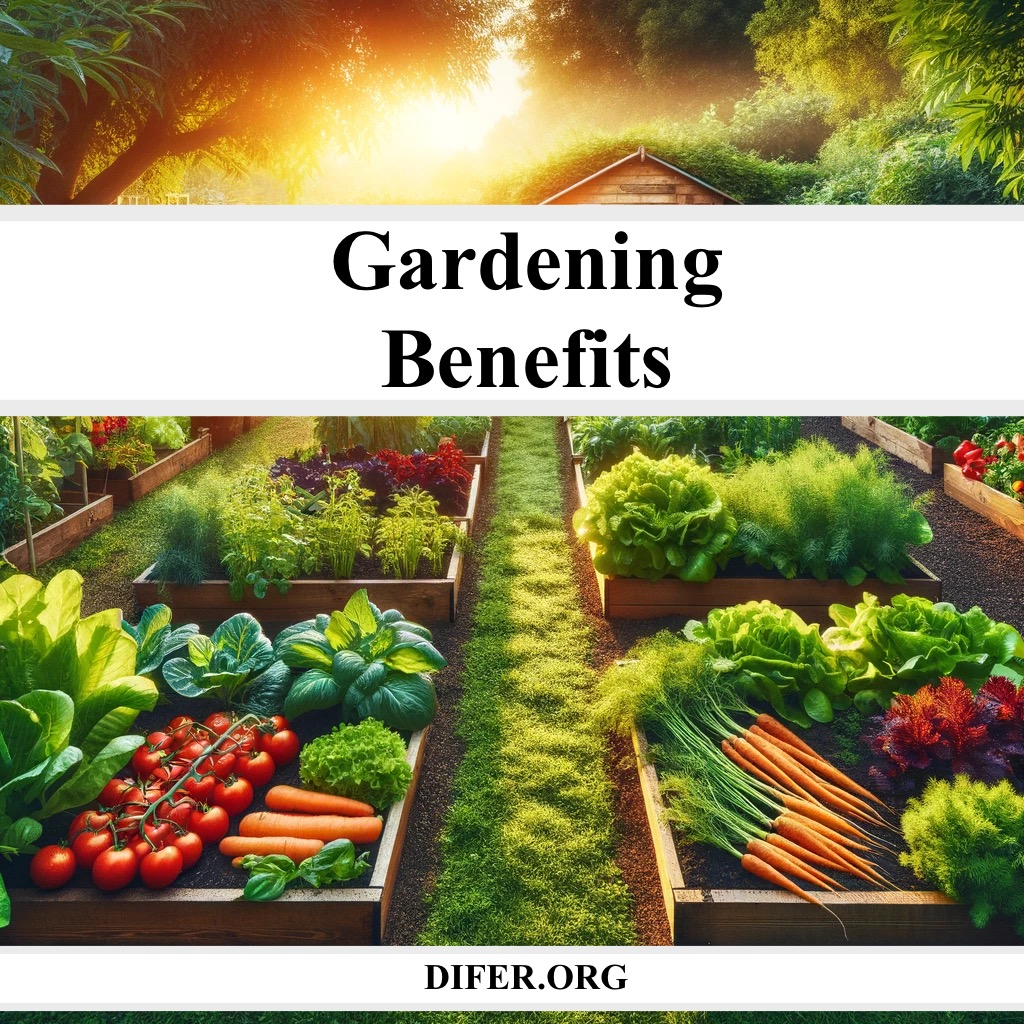Cultivating Savings: How Gardening Can Enrich Your Wallet and Wellbeing
Gardening is a remarkably effective strategy for reducing expenses while also enhancing one’s quality of life. This green approach not only yields fresh produce at your doorstep but also offers a therapeutic escape from busy modern daily life. How gardening can cultivate significant savings alongside flourishing greenery:
1. Cut Grocery Bills
The most tangible benefit of gardening is the reduction in grocery expenses. Vegetables, herbs, and fruits grown at home are a fraction of the cost of store-bought produce. By planting staples like tomatoes, lettuce, and strawberries, you can enjoy a bounty of fresh, organic produce without the premium price tags. Over time, the savings can accumulate, significantly cutting down your grocery bills.
2. Reduce Healthcare Costs
Gardening is not just about growing food; it’s a form of exercise that can improve physical health. The activities involved—digging, planting, weeding—provide a moderate physical workout that can contribute to weight loss, improved muscle strength, and better cardiovascular health. Plus, the mental health benefits of spending time in nature, reducing stress, and enhancing mood can lead to lower healthcare costs by promoting overall wellbeing.
3. Cut Down on Waste
A garden encourages a more sustainable lifestyle, leading to savings by reducing waste. Composting kitchen scraps and yard waste creates rich soil for your garden, eliminating the need for chemical fertilizers. This practice not only saves money but also reduces your environmental footprint by keeping organic waste out of landfills.
4. Preserve Your Produce
Gardening can lead to an abundance of produce, more than what can be consumed fresh. Learning to preserve food through canning, freezing, or drying enables you to enjoy the fruits of your labor throughout the year. This approach minimizes food waste and ensures that you don’t have to purchase these goods off-season when prices are higher.
5. Sow Seeds of Education
Gardening serves as an invaluable educational tool for children and adults alike. It teaches responsibility, patience, and the cycle of life, reducing the need for costly educational materials or experiences. The garden becomes a classroom, offering lessons in biology, economics, and environmental science, enriching minds without the need for expensive resources.
6. Foster Community Exchange
Participating in a community garden or setting up a produce exchange among neighbors can lead to shared resources and knowledge, further reducing costs. Swapping seeds, cuttings, and gardening tips with others can minimize expenses associated with gardening supplies and learning materials.
Incorporating these strategies into your gardening practice can lead to substantial savings, making it a worthwhile investment for both your pocket and the planet. To inspire your gardening journey, we’ve included a photo that captures the essence of what can be achieved with a bit of soil, seeds, and dedication.
Gardening serves as a testament to the potential savings and joy that gardening can bring into one’s life but also highlights the sustainability and tranquility of cultivating your own food. Through dedication and care, a backyard can transform into a sanctuary of nourishment, learning, and harmony with nature, enriching both the wallet and wellbeing.

Gardening offers a multitude of health benefits that encompass physical, mental, and emotional well-being. This nurturing activity connects us with nature and provides a unique combination of exercise, relaxation, nutrition, and education. Here are some of the key health benefits associated with gardening:
Physical Health Benefits
- Exercise: Gardening is a form of moderate physical activity that can contribute to maintaining a healthy weight, lowering blood pressure, and reducing the risk of heart disease, stroke, diabetes, and other health conditions. Activities like digging, planting, weeding, and watering promote strength, flexibility, and endurance.
- Vitamin D Exposure: Spending time outdoors in the sunlight increases your vitamin D levels, which is essential for bone health and the immune system. However, it’s important to balance sun exposure to avoid the risks of skin damage by wearing protective clothing and sunscreen.
- Hand Strength and Dexterity: Regular gardening helps keep the hands strong and nimble, which is particularly beneficial as we age. The fine motor skills involved in gardening can help maintain the hand muscles and joints, potentially reducing the symptoms of arthritis and other hand-related conditions.
Mental Health Benefits
- Stress Reduction: Gardening is a therapeutic activity that can significantly reduce levels of stress and anxiety. The combination of physical activity, being in nature, and the satisfaction of nurturing plants can have a calming effect, leading to improved mental health.
- Improved Mood: Contact with soil and plants has been shown to increase serotonin levels, a feel-good chemical in the brain that can help combat depression and improve mood. The accomplishment of seeing your garden grow also contributes to a sense of pride and happiness.
- Cognitive Health: Gardening can stimulate the brain and improve cognitive functions, including memory and attention. The learning process involved in gardening—from understanding plant species to problem-solving issues that arise—keeps the mind engaged and sharp.
Social and Emotional Health Benefits
- Community Connection: Community gardens and gardening clubs provide opportunities to connect with others, share knowledge, and build friendships. This social interaction can alleviate feelings of isolation and loneliness, particularly in older adults.
- Nutritional Benefits: Growing your own fruits, vegetables, and herbs can lead to a healthier diet rich in fresh, nutritious produce. Gardening encourages eating a more plant-based diet, which is linked to a lower risk of chronic diseases and better overall health.
- Mindfulness and Emotional Well-being: Gardening can be a meditative and mindful activity that helps people live in the moment and experience a deep connection with the natural world. This connection can foster a sense of peace, satisfaction, and emotional balance.
Gardening is much more than a hobby or a means to beautify our surroundings. It’s a comprehensive wellness activity that nurtures the body, mind, and soul. Whether it’s through the physical activity involved, the stress relief it offers, the nutritional benefits of fresh produce, or the social connections it fosters, gardening is a deeply enriching practice that can enhance our health in multiple ways

DIFER.ORG supports reducing waste





